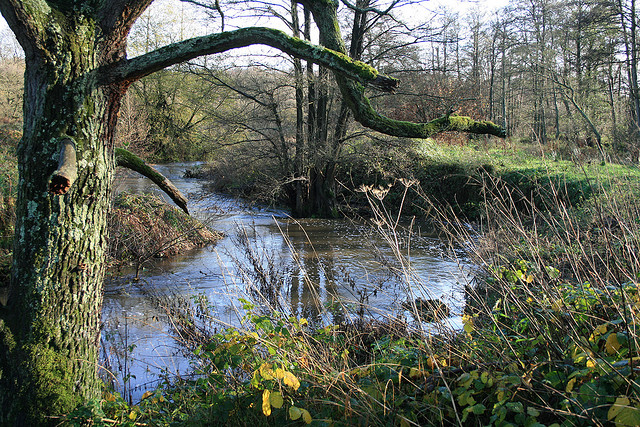Wrecked Rivers of T.S. Eliot’s ‘The Wasteland’ Teem With Life Once More
“The river sweats / Oil and tar / The barges drift / With the turning tide,” wrote T. S. Eliot in an ode to the River Thames in The Wasteland. Indeed, oil and tar and other industrial pollutants for years plagued Britain’s rivers, from the “Great Stink” of 1858 when human waste choked London’s Thames to the ‘dead’ waters of more recent years, characterized by an almost complete lack of life in Britain’s contaminant-laden waterways. At last, though, a glimmer of hope shines through for Britian’s rivers.
According to Futurity.org:
After decades of pollution, typically from poorly treated sewage and industrial waste, urban rivers throughout England and Wales have improved dramatically in water quality and wildlife.
To arrive at this encouraging conclusion, researchers from Cardiff University used 50,000 river samples taken from all over Great Britain. The found that mayflies and stoneflies – species indicative of a healthy ecosystem – had largely returned. To birders’ delight, dippers and kingfishers have also flitted back to the shores of many rivers.
The team credited industrial decline, tighter regulation, and improved wastewater treatment over recent decades for the general improvement.
Unfortunately, the results did not apply universally. Rivers in some parts of Wales and Northern England have actually deteriorated in quality over recent years, the researchers found.
Britain’s Environmental Agency plans to continue measures to reduce pollution and restore rivers to health, at which point a different selection of Elliot’s prose may fit the bill: “The river bears no empty bottles, sandwich papers, / Silk handkerchiefs, cardboard boxes cigarette ends / Or other testimony of summer nights.”
More from Smithsonian.com:
/https://tf-cmsv2-smithsonianmag-media.s3.amazonaws.com/accounts/headshot/Rachel-Nuwer-240.jpg)

/https://tf-cmsv2-smithsonianmag-media.s3.amazonaws.com/accounts/headshot/Rachel-Nuwer-240.jpg)